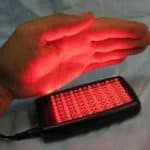Last Updated on 1 year by Francis
Contents
How Do I Feel Worse After My B12 Injection?

If you have been given a B12 injection for your deficiency, you may have a few questions. These include how you feel after the shot, whether you will have any side effects, and how long you have to wait before you start feeling better.
Your body’s cells need B12 to function properly. As such, having inadequate B12 levels can decrease normal red blood cell production, which can impair oxygen delivery.
Groups at an increased risk of developing a vitamin B12 deficiency are:
- Vegans Vegetarians Adults over 50 Those with low gastric intrinsic factor
- Those with a low amount of stomach acid Those taking certain medications Gastrointestinal disorders like Crohn’s disease and celiac disease
- Those who have had weight loss surgery, bowel resection, or surgery on another part of the digestive tract
- Those who take metformin and acid-reducing medications
- Those with specific genetic mutations, such as MTHFR, MTRR, and CBS
- Those who regularly consume alcoholic beverages
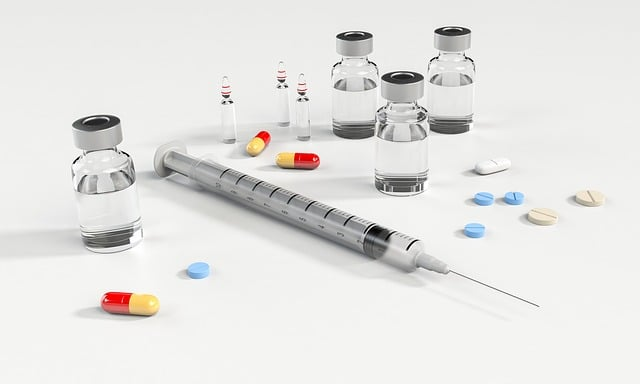
What should you not do after a B12 shot?
B12 injections are useful for many people, but they can have side effects. If you are thinking about getting a shot, it is a good idea to understand some of the common side effects, which should be noted and reported to your doctor.
One of the most common B12 injection side effects is dizziness. While this effect is generally mild, it can be uncomfortable and can last for several hours.
Another common side effect is nausea. This is usually mild, and if it worsens, you should see your doctor.
You may experience itching, pain or swelling around the injection site. The symptoms should go away quickly, but should be reported to your doctor.
Vitamin B12 is an important nutrient for the brain and nervous system. It also plays a role in the formation of red blood cells. Therefore, a deficiency can cause a variety of problems, including anemia.
Other symptoms include a decrease in energy and mood, an irregular heartbeat, muscle cramping, and depression. A long-term lack of vitamin B12 can lead to neurologic damage.
How long does it take to feel better after B12 inj
Injections of vitamin B12 are an effective treatment for a variety of ailments. It can help improve memory, focus, and mood, among other benefits. Some people say it also helps improve energy.
Vitamin B12 is essential to keep your red blood cells healthy and working properly. If you are deficient in this essential nutrient, you may experience symptoms like fatigue, muscle cramps, and even anemia. For most adults, only 2.4 micrograms of the vitamin are needed each day. But, in some cases, more is needed.
Whether you are taking oral supplements or getting B12 injections, it’s important to understand how the treatment works. Your doctor will check your levels and decide on the best way to get the vitamin.
The most common method for obtaining a high dose of the vitamin is by injecting it directly into the muscle. This allows the injected solution to travel throughout the body more efficiently.
The first sign that you might have a vitamin B12 deficiency is feeling weak and tired. If you are suffering from a severe deficiency, you could also experience neurological problems like weakness and paralysis. Symptoms will usually clear up in about six to eight weeks. However, it may take longer for more serious conditions to show signs of improvement.
The most common treatment for pernicious anemia is lifelong vitamin B12 injections, but small amounts of vitamin B12 are absorbed without intrinsic factor. One review concluded that taking 1,000 mcg daily is an effective alternative to injections.
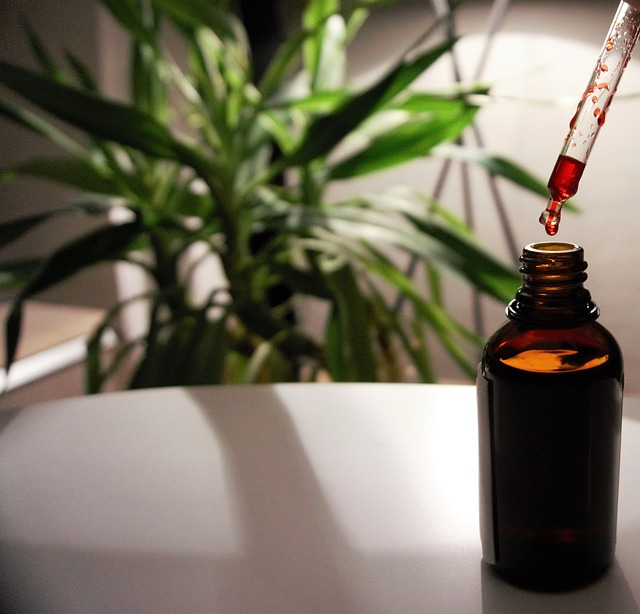
B12 Shot Side Effects
- Vitamin B12 shots are normally given either with hydroxocobalamine or cyanocobalamine. The B12 shot side effects have only recently remained rare.
- However, putting any needle on your leg or glute may cause swollen area.
- Other B12 shots side effects are gastrointestinal discomfort, but are usually relatively mild.
- Regardless, consult a medical professional if it is not gone away or worsens. Usually a B12 shot may have negative reactions and is often fatal.
- You may also experience some numbness and tingling, depending on the injection location, as well as joint pain.
- B12 injections may contribute to low potassium levels in your body. Though rare, this reaction can cause muscle cramping, extreme fatigue, and an irregular heartbeat.
- An abnormal increase in red blood cells, a runny nose, chest pain, a swollen tongue and fever are additional adverse reactions that may occur after the injection.
Does B12 make you feel weird?
B12 is a common supplement for health problems. For the average adult, it’s recommended 2.4 micrograms per day. Doing more than you want will pass your body through your pee. Although it may not work well in most patients, it may cause a few side effects such as dizziness, headaches, anxiousness nausea and vomiting.
Does B12 give you energy immediately?
Is vitamin C really good for energy and is it beneficial to our health? While B12 has no direct power source it does give the body the tools needed to transform nutrients and molecules. The recommended daily B12 intake can therefore be a helpful way to give our bodies the fuel they need to do whatever they need.
Vitamin B12 is kind of a big deal. Your body needs it to produce red blood cells and DNA and to keep your brain and nerve cells functioning.

Can you overdo B12 injections?
Several studies indicate that megadoses of vitamin B12 injections cause outbreaks of acne or rosacea. Rosacea can be caused when you get red spots on your face. Increasing the dosage may cause severe kidney and diabetes problems.
Some side effects associated with the injections include nausea, vomiting, indigestion and mild diarrhea, according to Drugs.com.
Some evidence implies that very high doses of vitamin B12 can cause complications if you have diabetes or kidney disease.
If a reaction occurs it is usually within several weeks after the first injection. Symptoms of an allergic reaction include difficulty breathing, swelling of the face and airway and hives.
Swelling and Skin Reactions A possible reaction to a cyanocobalamin injection is swelling. The swelling may occur in the arms, legs, hands, ankles and feet. Some people may also feel like their entire body is swollen, according to MedlinePlus.
If you have high blood pressure or poor cardiovascular health, having too much B12 may further complicate these issues.
Pregnant and breastfeeding women may also need to be especially mindful of B12 levels.
Can too much B12 cause numbness and tingling?
Occasionally, people taking a high dose of vitamin B may feel numb or have painful pain. In many individuals the tingle feels primarily in the left hand. Those symptoms may be a sign if you’re overdosing on Vitamin B12.
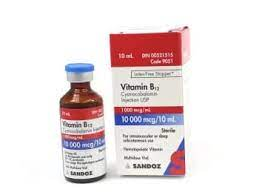
Can B12 make you tired?
Fatigues. Having high B12 levels is an easy way to get a bit tired. Your body’s cells require B12 for good health. Therefore, low levels of B12 can decrease blood flow thereby affecting oxygen delivery.
Are vitamin B12 shots more effective than vitamin B12 oral supplements?
Both methods of treatment can give the desired results; most patients are deemed able to achieve their treatment goals in their personal circumstances. Some studies have shown oral vitamins B12 have the same efficacy as intramuscular injections, but studies have also indicated that B12 is not absorbed as easily through the digestive process. It may be best that a doctor consult your doctor about your condition.
Are Vitamin B12 shots painful?
Though the severity and degree of pain vary according to the individual, B12 injections are generally considered relatively painless. Injection of a muscle usually produces pain, swelling or itching at injection sites. Nevertheless, these symptoms are mild.
Can B12 injections make you feel sick?
Some patients have reactions to vitamin B-12 injections on their gastrointestinal tract. Symptoms of the injectables include nausea, vomiting, indigestion, mild vomiting and diarrhea.
How long does it take to feel better after B12 injections?
Because B12 injections bypass a digestive process, they are immediately effective. Generally, we achieve positive results within 24 hours of treatment.
Does B12 make your body ache?
Insufficient vitamin B12 can lead to severe depression, joint pains and tiredness. Sometimes these symptoms can cause severe depression or death.
How often should I get B12 injections?
In most cases, you may be able to take the hydroxocobalamin twice weekly or every other month in order to get the full benefit.
What should I expect after a B12 shot?
Pain and redness in the area of injection may be present. If the effects are severe, you must immediately notify a physician.
Other ways to supplement with Vitamin B12
It is easy to take supplements if you have deficient Vitamin B12.
If blood tests indicate that you’re dealing with a vitamin B12 deficiency and you aren’t a fan of needles, you have a few ways to up your intake.
Swallow oral supplements
The B12 supplement comes in many forms, such as lozenged, gum, tablet and soft gel. Like B12 injections, oral supplements are generally safe and even when taken with an increased calorie count. You drench out the excess nutrients in your body. Despite the above mentioned risks, B12 can cause adverse reactions in certain doses such as:
Nasal spray
Vitamin B12 has been found in nasal sprays as well. Similar to the B12 shot, the nasal powder allows one to inject B12 into your bloodstream through the nostrils bypassing your digestive system. Injection of high B12 is generally only recommended to keep B12 in the system.
Eat B12-rich foods
You can no longer create B12 and you must obtain it through foods or supplements. It may seem impossible for people to meet their B12 requirement by eating only. B2 / A1 / C2 – B6 – A1 Many people with poor nutrition may not get enough vitamins B12 from diet and exercise.
What should you not do after a B12 shot?
Avoid intense workouts for 24 hours following therapy. Do not touch the injection site during treatment. You might feel an aching pain at the injection site within an hour. Do not use thinning medications.
How long does it take to feel better after B12 injections?
Since B12 injections are intramuscular bypassing digestion, the drugs begin to act immediately. Typically, patients receive positive outcomes within 24 hours of treatment.
Can B12 symptoms get worse before they get better?
Those with vitamin B12 deficiency may develop gradually, but will become worse over time. Many people may have no symptoms when vitamin B12 is not present. Vitamin B12 deficiency patients can have neurological problems without anemia (no red clotting).
How do I know if B12 injections are working?
B12 injections are administered by a medical professional and come in many forms. They include the intramuscular form and the subcutaneous form. Injections are typically given every 10 days, although the frequency may change depending on your needs.
B12 injections are a good way to boost energy and improve focus. They can also improve sleep. However, they have certain side effects.
One of the most common side effects of B12 shots is an itchy rash around the injection site. This rash can spread quickly, leading to a serious allergic reaction. Other symptoms can include a lowered blood pressure and trouble breathing.
Other side effects of B12 injections can be irritation or pain at the site of the shot. This discomfort can last from a few minutes to a couple of days.
Some people also experience nausea, diarrhea, or upset stomach. These symptoms generally do not occur very often, but if they do, they should be reported to your healthcare provider.
There are a few reasons why a person might not be able to absorb enough B12. A person might not be absorbing enough due to an inflammatory bowel disease or Crohn’s disease. Another reason is gastrointestinal surgery. The stomach cells that are removed in gastrointestinal surgery reduce the amount of B12 available to the body.
Can B12 injections make you feel unwell?
If you’re considering getting B12 injections, it’s important to know what the benefits and side effects are. Injections are an option for treating deficiencies of vitamin B12 and improving energy levels.
Vitamin B12 injections can help many different systems in the body. It helps increase energy levels, regulate hormones, and improve memory and focus. Getting a shot is also helpful for people who are vegan or vegetarian.
People who get a shot may experience some discomfort at the injection site. Depending on the individual, it can last for several minutes to several days. This is why it’s important to follow wound care instructions.
Some people may experience minor allergic reactions. These can include itching, swelling, and skin rash. The symptoms of an allergic reaction are extremely rare, however. You should seek medical help if you’re experiencing a skin rash or other symptoms.
Getting a shot can be very painful. A person’s pain tolerance can vary, but it’s common for tense people to experience more pain than calm people.
When you get a shot, you can expect to feel some swelling, irritation, and redness around the area where the injection was administered. There is a small risk of infection at the injection site, and your doctor should be notified if you experience any pain.
How do you feel after a B12 injection?
A B12 injection is a procedure that can help improve your overall health. It has been proven to increase energy levels and boost your metabolism. In addition, it can also regulate hormones and give you a more restful night’s sleep.
Vitamin B12 is a water-soluble vitamin that is crucial for a number of functions in the body. It is a required component in DNA synthesis and red blood cell production. If you haven’t been getting enough of this important nutrient, you may feel very tired and depressed. You may also experience symptoms such as memory problems and erectile dysfunction.
Before you get an injection, you should have a doctor test your B12 level. This will help ensure that you don’t experience any negative side effects. Also, it’s important to remember that B12 is stored in the liver for a long time. Therefore, a deficiency can take years to manifest itself.
A B12 injection is relatively painless. However, some people do experience a minor sting at the site of the injection. The discomfort will usually subside within minutes, but it’s best to be prepared for this potential side effect.
Can B12 make you tired?
Vitamin B12 injections are a popular treatment for various diseases. They can help with fatigue, gastrointestinal problems, and autoimmune disorders. However, they can also cause some side effects.
Vitamin B12 helps to maintain the nervous system, red blood cells, and DNA. It can also boost the metabolism. For instance, it helps the body metabolize fats.
Some people get B12 injections because they can’t absorb it through the gut. This can be caused by an aging digestive system, chronic intestinal disorders, or prescription medications.
Other symptoms of a deficiency include headaches, a feeling of breathlessness, and a weak immune system. If these symptoms persist, it’s time to see your doctor. Getting a proper balance of vitamins is important to keep your body healthy.
Vitamin B12 injections are especially effective for vegans and vegetarians. They provide a natural energy boost, and they also help to metabolize protein and fats.
Some side effects may occur after you take an injection of vitamin B12. These may include a low-grade fever, a rash, itching, or swelling at the site of the injection. The side effects should subside within a few days.
How long does it take to get B12 levels up?
There are a few different factors that affect how long it takes to raise B12 levels after a shot. Some people can see benefits within a week, while others may need to continue receiving shots for the rest of their life.
Taking a vitamin B12 shot can be a great way to boost your energy and focus. It also can help with hormones and sleep. If you’re concerned about your B12 levels, talk to your doctor.
Vitamin B12 can be found naturally in some animal products and plant-based foods. However, a lot of the B12 in your body is stored in the liver. So if your liver isn’t working properly, you’re likely to experience a deficiency.
Your doctor may recommend that you take a pill or have an injection. This depends on the type of vitamin deficiency you have. For example, a mild deficiency can be treated with a shot, while a severe one requires a pill or multiple injections.
One of the advantages of taking a B12 injection is that it gets right into your bloodstream. That means you can get the benefits of the vitamin without the stomach pain that comes with oral supplements.

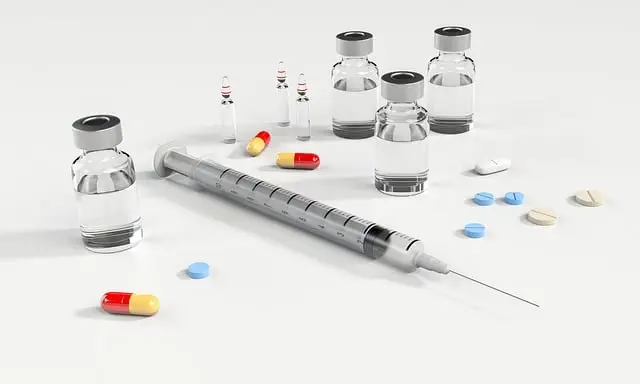

.jpg)




